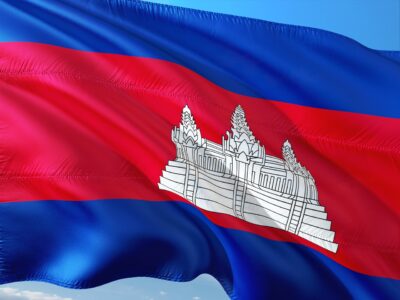20-09-2024
Katherine Youssouf and Mahbuba Kamal
Bangladesh Campaign
Global Human Rights Defence
On September 18th, 2024, two tragic incidents of vigilante justice shook Bangladesh, with the deaths of two individuals at the University of Dhaka and Jahangirnagar University. These brutal killings carried out in the name of “mob justice,” have sent shockwaves across the nation, highlighting the disturbing culture of impunity and lawlessness that has allowed such acts of violence to proliferate. After the fall of the fascist Sheikh Hasina regime through the Anti-discrimination Student Movement, surprisingly, the absence of law and order and the rapid rise of mob lynching has become a common phenomenon in Bangladesh. Such incidents are not just criminal acts but also gross human rights violations, showcasing how dangerous unchecked mob behaviour can be in a society where the rule of law is meant to prevail.
The first incident occurred at Fazlul Huq Muslim Hall, the University of Dhaka, where a man, namely Tofazzal Hossain, mentally unstable, was mercilessly beaten to death by a group of students based on the suspicion of being a thief of mobile devices. Tofazzal endured unthinkable suffering. The students beat him miserably, encouraged him to walk between buildings, provided him with meals, and regrettably continued the torment until he was dead.
The second tragedy occurred at Jahangirnagar University, where another individual faced a similar fate. Shamim Ahmed, a former leader of Jahangirnagar University Chhatra League, died from injuries sustained during a mob lynching. He was accused of attacking student protesters on July 15th on the Jahangirnagar University campus.
In both cases, the mobs took the law into their own hands, delivering their version of “justice” in the absence of evidence or due process. What makes these killings particularly shameful is that they occurred at educational institutions — spaces meant for learning, reason, and dialogue — turning them into scenes of senseless violence.
The notion of “mob justice” is not new in Bangladesh, but its resurgence in recent years is alarming. The belief that a group of individuals can act as judge, jury, and executioner is not only dangerous but unlawful. Such actions undermine the very foundation of a just society, which relies on a fair and impartial legal system to determine guilt and administer punishment. In both incidents, the victims were denied their fundamental human rights: the right to a fair trial, the presumption of innocence, and, most tragically, the right to life.
This growing trend of mob justice is symptomatic of deeper issues within the country’s justice system. There is a widespread lack of trust in law enforcement agencies and the judicial process, often leading to people taking the law into their own hands. However, the solution is not vigilante action but a strengthening of the rule of law. When justice is brought into the hands of mobs, there is no lawful accountability mechanism through evidence and trial. Thus, there is no guarantee that the punishment fits the crime — or that a crime was even committed.
Furthermore, these acts are clear violations of international human rights law. Bangladesh is a signatory to the Universal Declaration of Human Rights (UDHR) and the International Covenant on Civil and Political Rights (ICCPR), guaranteeing everyone the right to life, liberty, and security. Article 3 of the UDHR explicitly states that no one should be arbitrarily deprived of these rights. By allowing mob justice to persist, Bangladesh is failing in its duty to protect its citizens and uphold the principles enshrined in international human rights treaties.
The government and educational authorities must take immediate and decisive action to address this growing problem. First and foremost, those responsible for these killings must be brought to justice. Only then can the message be sent that such actions will not be tolerated. Additionally, efforts must be made to restore faith in the legal system, ensuring it is swift, fair, and transparent. Public awareness campaigns and legal education can also play a crucial role in changing the culture of mob justice, teaching citizens that justice belongs in the courts, not in the hands of a violent crowd.
At present, six students of Dhaka University have been arrested for their alleged involvement in the mob lynching of Tofazzal Hossain. On the other hand, students of Jahangirnagar University arranged daylong demonstrations demanding justice over mob lynching across the country. Followingly, the authority of Jahangirnagar University has suspended eight students in connection with the death of former student Shamim Ahmed. Witnessing massive outreach of mob justice in the country, the interim government, led by Prof Dr Muhammad Yunus, has embraced a zero-tolerance policy against extrajudicial killings, assaults, and harassment.
In conclusion, the killings at the University of Dhaka and Jahangirnagar University are a stark reminder of the dangers of mob justice. These incidents are not only a tragedy for the victims and their families but also a violation of the fundamental human rights that every individual is entitled to. Bangladesh must act swiftly to prevent further such tragedies, restoring the rule of law and ensuring that justice is served through proper legal channels, not through the brutal actions of a mob.
Sources and Further Reading
(2024, September 19). Don’t take law into your own hands: Police Headquarters. Jago News. https://www.jagonews24.com/en/national/news/77015.
(2024, September 19). Mob lynching at DU: 6 students, including ex-BCL leader, arrested. The Business Standard. https://www.tbsnews.net/bangladesh/mob-lynching-du-5-students-including-ex-bcl-leader-arrested-945391.
(2024, September 19). Protests erupt as two beaten to death at DU, JU. New Age Bangladesh. https://www.newagebd.net/post/country/245688/protests-erupt-as-two-beaten-to-death-at-du-ju#google_vignette.
Ahmed, T. (2024, September 19). Mob justice is just murder. The Daily Star. https://www.thedailystar.net/news/bangladesh/news/mob-justice-just-murder-3706911
Hossain, S. (2024, September 20). Lynch mobs acting with impunity. The Daily Star. https://www.thedailystar.net/news/bangladesh/crime-justice/news/lynch-mobs-acting-impunity-3707346.
Mizan, M & Rubel, S. (2024, September 20). Savagery at DU: They beat him, fed him, then killed him. The Daily Star. https://www.thedailystar.net/news/bangladesh/crime-justice/news/savagery-du-they-beat-him-fed-him-then-killed-him-3707351.
Rifat, A. (2024, September 19). JU students demand justice for murder of ex-Chhatra League leader. Dhaka Tribune. https://www.dhakatribune.com/bangladesh/education/359033/ju-students-demand-justice-for-murder-of.
Shawon, A. (2024, September 20). Govt adopts zero tolerance policy against mob justice. Dhaka Tribune. https://www.dhakatribune.com/bangladesh/359069/govt-adopts-zero-tolerance-policy-against-mob.
UNB. (2024, September 19). 8 JU students suspended over death of former student in mob lynching. Dhaka Tribune. https://www.dhakatribune.com/bangladesh/education/359061/%C2%A08-ju-students-suspended-over-death-of-former.







Comments